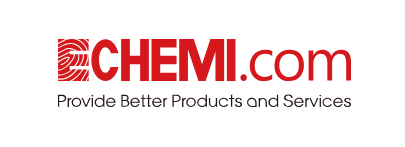regulatory compliance for chemical factories

Regulatory compliance is of paramount importance for chemical factories to ensure the safety of workers, protect the environment, and meet legal obligations. Compliance with stringent regulations and standards is essential to prevent accidents, minimize risks, and maintain operational integrity. Here are key aspects highlighting the significance of regulatory compliance for chemical factories:
1. Health and Safety Standards:
Compliance with health and safety regulations is crucial to safeguard workers from occupational hazards and ensure a safe working environment within chemical factories. Implementing safety protocols, providing adequate training, and conducting regular safety audits are essential to prevent accidents and protect employee well-being.
2. Environmental Regulations:
Adherence to environmental regulations is vital for mitigating pollution, reducing emissions, and minimizing the environmental impact of chemical manufacturing processes. Compliance with waste management protocols, air and water quality standards, and environmental permits is necessary to protect ecosystems, wildlife, and public health.
3. Hazardous Materials Handling:
Proper handling, storage, and disposal of hazardous materials are key aspects of regulatory compliance for chemical factories. Compliance with protocols for labeling, containment, and emergency response procedures is critical to prevent chemical spills, leaks, and contamination that could pose risks to human health and the environment.
4. Permitting and Reporting Requirements:
Obtaining necessary permits and licenses from regulatory authorities is essential for legal operation of chemical factories. Compliance with reporting requirements, such as emissions monitoring, waste disposal records, and safety data sheets, ensures transparency, accountability, and regulatory oversight in chemical manufacturing activities.
5. Product Compliance and Labeling:
Ensuring compliance with product safety regulations and labeling requirements is essential for chemical factories to market and distribute products legally. Proper labeling of chemicals, adherence to product safety standards, and compliance with regulatory guidelines for product testing and registration are critical aspects of regulatory compliance.
6. Emergency Preparedness and Response:
Having robust emergency preparedness plans and response procedures in place is crucial for regulatory compliance in chemical factories. Conducting regular drills, training employees on emergency protocols, and coordinating with local emergency services enhance readiness to manage and mitigate potential incidents effectively.
7. Regulatory Updates and Continuous Monitoring:
Staying informed about regulatory changes, updates, and evolving standards is essential for maintaining compliance in chemical factories. Regular monitoring of regulatory developments, conducting compliance audits, and implementing corrective actions ensure that operations align with the latest legal requirements and industry best practices.
8. Penalties and Enforcement:
Non-compliance with regulatory requirements can result in severe penalties, fines, and legal consequences for chemical factories. Enforcement actions by regulatory agencies may include fines, sanctions, shutdown orders, or legal proceedings, underscoring the importance of proactive compliance efforts to avoid regulatory violations.
In conclusion, regulatory compliance is a fundamental aspect of operations for chemical factories, ensuring adherence to health, safety, environmental, and product regulations to protect people, communities, and the environment. By prioritizing compliance with legal requirements, implementing best practices, and fostering a culture of safety and responsibility, chemical factories can uphold ethical standards, mitigate risks, and maintain sustainable and responsible operations in the chemical manufacturing sector.
- Questions and Answers
- Opinion
- Motivational and Inspiring Story
- Technology
- Live and Let live
- Focus
- Geopolitics
- Military-Arms/Equipment
- Безопасность
- Economy
- Beasts of Nations
- Machine Tools-The “Mother Industry”
- Art
- Causes
- Crafts
- Dance
- Drinks
- Film/Movie
- Fitness
- Food
- Игры
- Gardening
- Health
- Главная
- Literature
- Music
- Networking
- Другое
- Party
- Religion
- Shopping
- Sports
- Theater
- Health and Wellness
- News
- Culture

